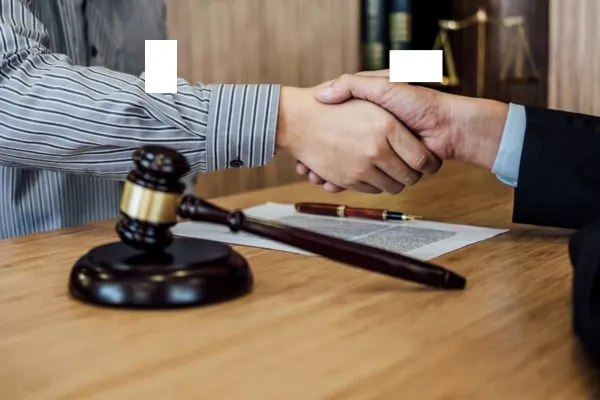The selection of a wedding officiant represents one of the most significant decisions couples make during their wedding planning process. While many focus on venue decoration, catering, and photography, the person who legally solemnizes the marriage holds a unique responsibility that extends beyond ceremonial duties. Skilled wedding officiant services encompass both the legal requirements necessary to validate a marriage and the personal elements that make a ceremony memorable.
The Legal Foundation of Wedding Officiants
Wedding officiants serve as legally authorized individuals who perform marriage ceremonies and ensure compliance with state and local marriage laws. Their primary legal function involves witnessing the marriage, completing the marriage license, and filing the necessary documentation with the appropriate government office. Without proper officiating, a marriage ceremony, regardless of its beauty or emotional significance, may not be legally recognized.
The legal requirements for who can serve as an officiant vary considerably across different jurisdictions. Some states recognize religious leaders, judges, and government officials as automatic authorities. Others permit individuals to become officiants through online ordination or temporary authorization specifically for one ceremony. Understanding these requirements is essential, as an improperly authorized officiant can result in an invalid marriage, necessitating additional legal steps to formalize the union.
Qualifications and Training of Professional Officiants
Skilled wedding officiant services distinguish themselves through comprehensive training and preparation. Professional officiants typically pursue education in ceremony design, public speaking, and the legal requirements of marriage in their jurisdiction. Many obtain credentials through established religious institutions, secular organizations, or professional officiant associations that provide structured training programs.
Beyond basic authorization, experienced officiants develop expertise in several critical areas. They understand the nuances of marriage law, including waiting periods, documentation requirements, and filing deadlines. They also cultivate skills in ceremony customization, allowing them to adapt their services to diverse cultural traditions, religious backgrounds, and personal preferences. This combination of legal knowledge and ceremonial expertise ensures that couples receive both a valid marriage and a meaningful experience.
The Role of Officiants in Ceremony Planning
The involvement of skilled wedding officiant services extends well beyond the wedding day itself. Professional officiants typically engage with couples through multiple planning sessions, discussing ceremony structure, vows, readings, and any special rituals or traditions the couple wishes to include. This collaborative process ensures that the ceremony reflects the couple’s values, beliefs, and relationship story.
During these consultations, officiants also address practical considerations. They review the marriage license requirements, explain the signing process, and clarify the timeline for filing documents with the appropriate government office. They may also discuss contingency plans for weather-related issues, provide guidance on ceremony length, and coordinate with other wedding vendors to ensure smooth execution.
Cultural and Religious Considerations
One hallmark of skilled wedding officiant services is the ability to honor diverse cultural and religious traditions. Professional officiants often have experience with interfaith ceremonies, multicultural weddings, and non-traditional celebrations. They approach each ceremony with cultural sensitivity, taking time to understand the significance of specific rituals and incorporating them appropriately.
For couples from different religious backgrounds, a skilled officiant can create a ceremony that respectfully acknowledges both traditions without favoring one over the other. Similarly, for couples seeking entirely secular ceremonies, professional officiants can craft meaningful experiences that focus on personal values and commitments rather than religious doctrine. This adaptability ensures that all couples, regardless of background, can access officiant services that align with their beliefs.
Common Challenges and How Professionals Address Them
Even well-planned weddings can encounter unexpected challenges, and skilled officiants are prepared to handle various scenarios. Technical difficulties with sound systems, last-minute changes to ceremony elements, and emotional moments that require sensitive handling are all situations where professional experience proves invaluable.
Skilled officiants also navigate complex family dynamics with diplomacy. They can adjust ceremonies to accommodate family members with differing expectations, manage situations where parents or relatives wish to participate, and maintain appropriate boundaries when family conflicts arise. Their experience allows them to remain calm and professional, ensuring that the focus remains on the couple’s commitment.
Ensuring Legal Validity
Perhaps the most critical function of skilled wedding officiant services is ensuring the legal validity of the marriage. This responsibility includes verifying that the marriage license is current and properly completed, confirming that all required witnesses are present, and ensuring that all signatures are obtained correctly. After the ceremony, the officiant must file the completed license within the specified timeframe, which varies by jurisdiction but is typically between 24 hours and 30 days.
Failure to properly execute these legal requirements can result in significant complications. Couples may discover weeks or months later that their marriage was never legally recorded, requiring them to repeat the legal process. Professional officiants understand these requirements thoroughly and implement systematic procedures to prevent such issues.
Conclusion
Skilled wedding officiant services represent a critical intersection of legal authority and ceremonial artistry. Professional officiants bring legal expertise, cultural sensitivity, and personal attention to one of life’s most significant moments. Their role extends far beyond reciting vows; they serve as legal agents, ceremony designers, and supportive guides throughout the wedding planning process. For couples seeking both a legally valid marriage and a personally meaningful ceremony, investing in skilled officiant services provides assurance that their wedding will be conducted properly, professionally, and with the respect such an important commitment deserves. Understanding the scope and significance of professional officiant services enables couples to make informed decisions that honor both the legal requirements and the emotional importance of their wedding day.

